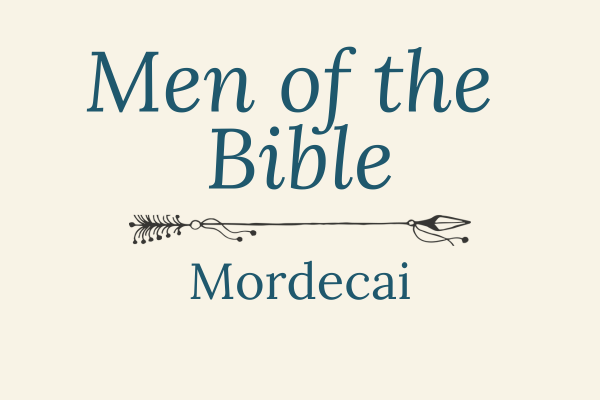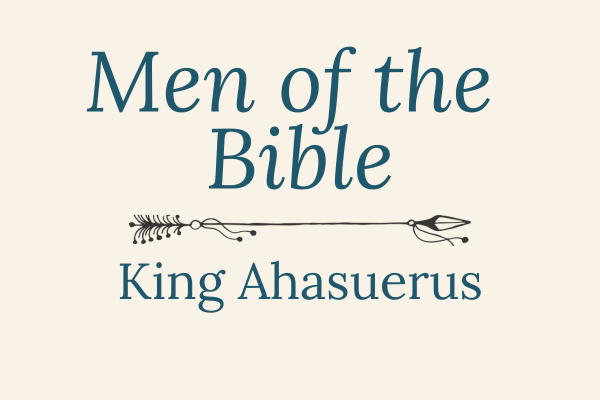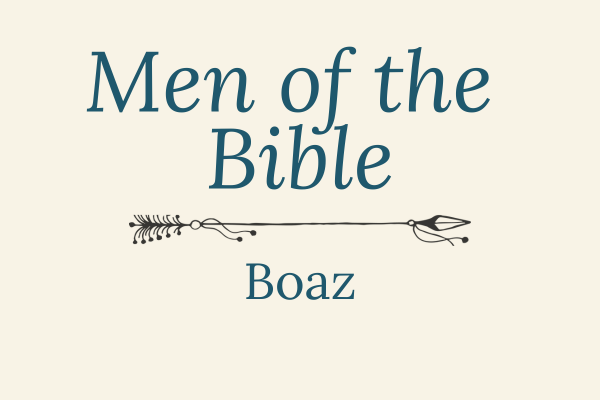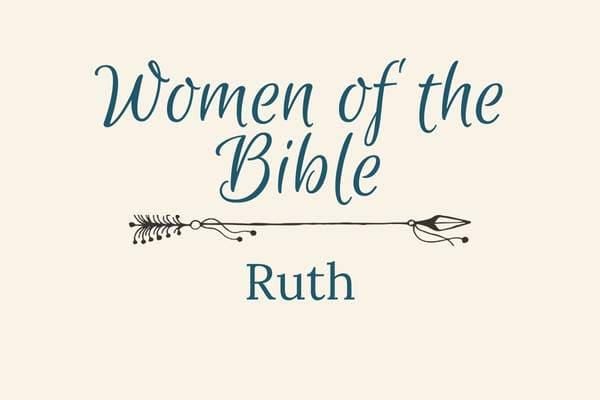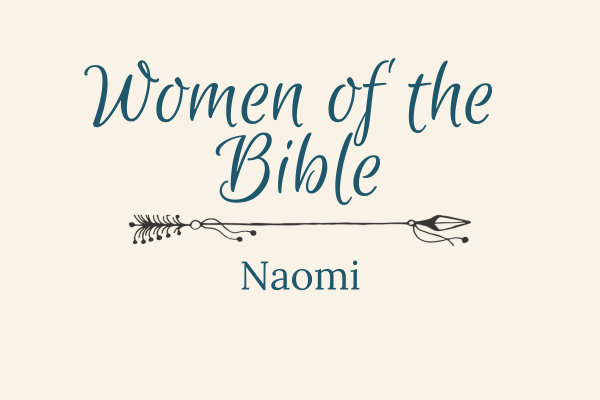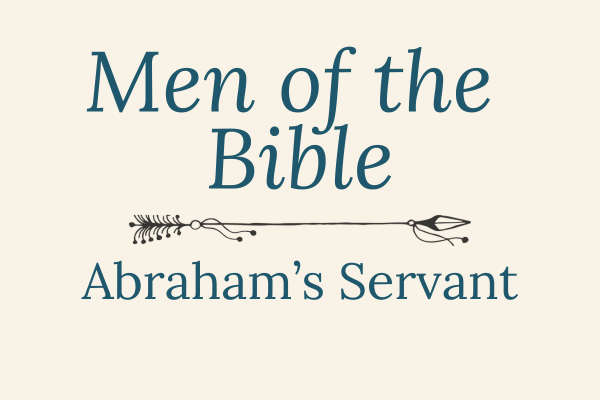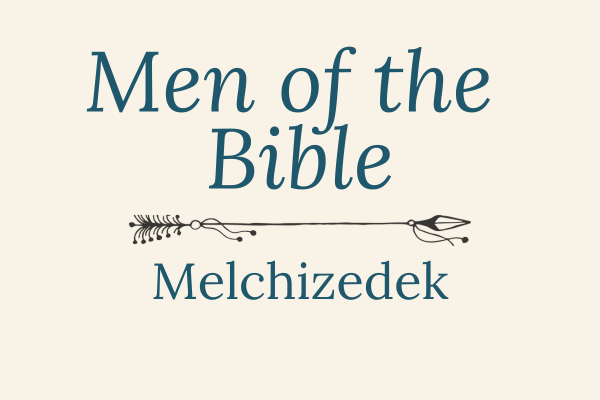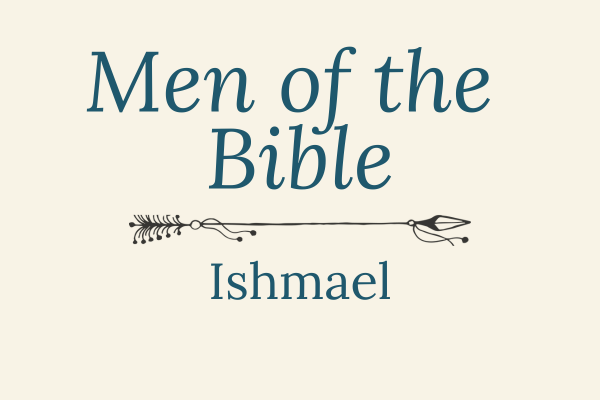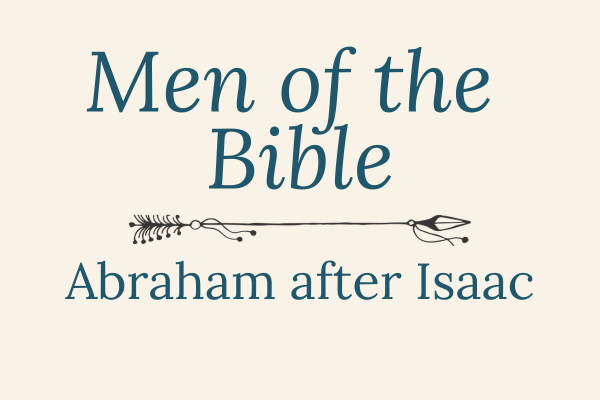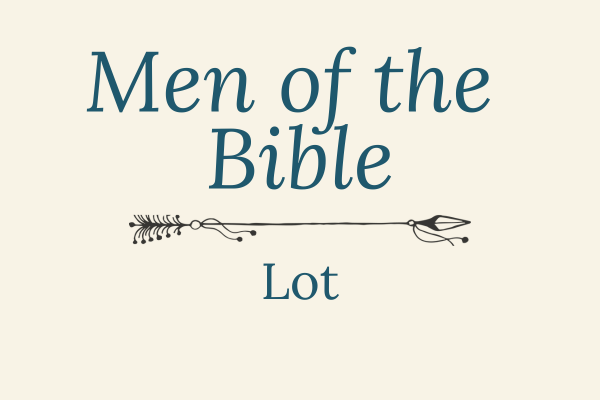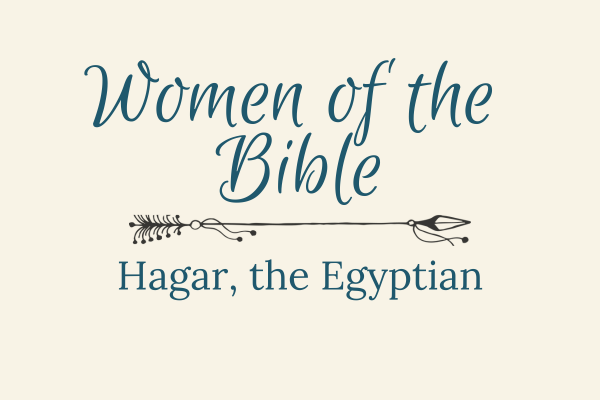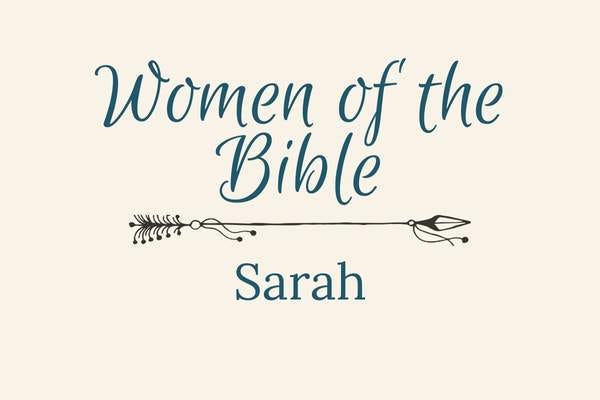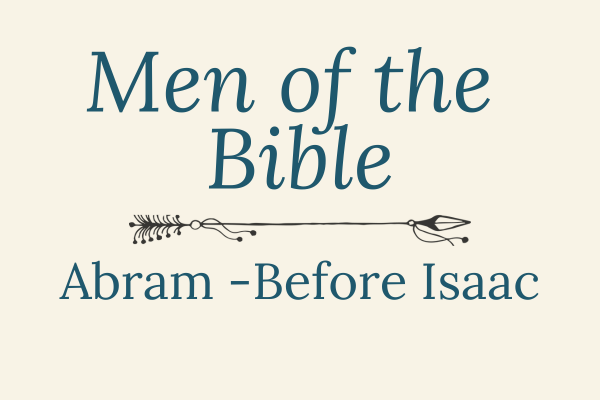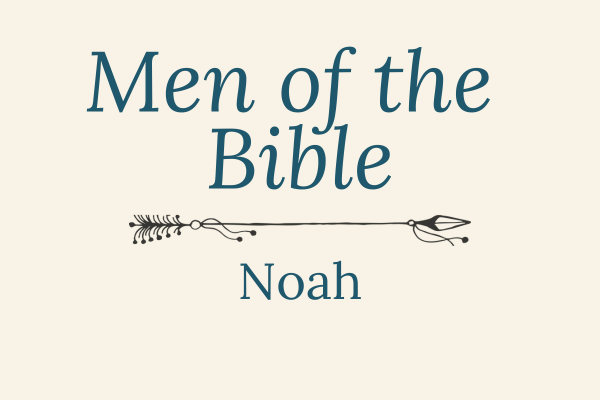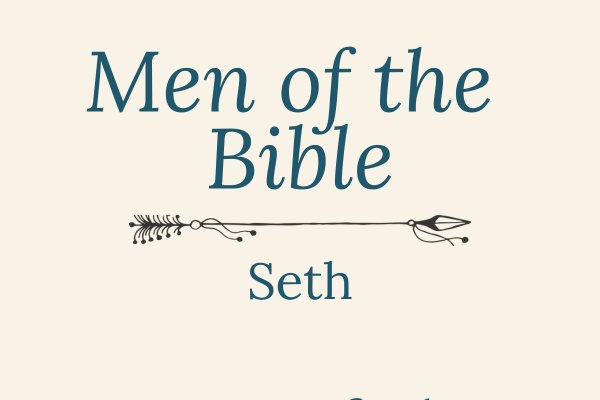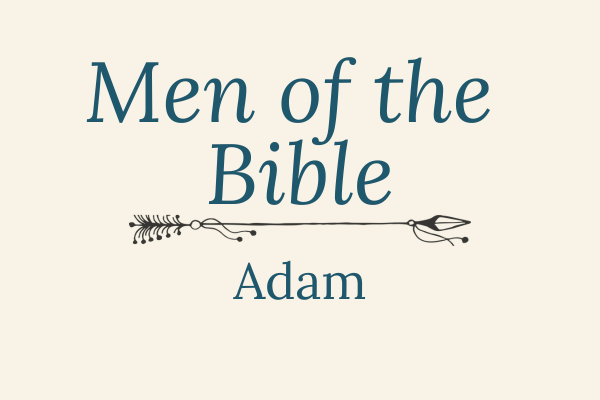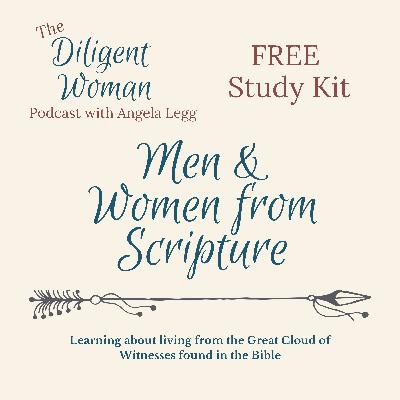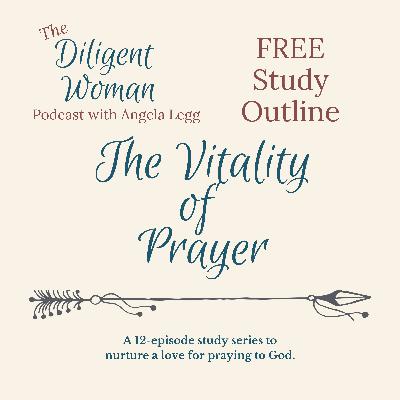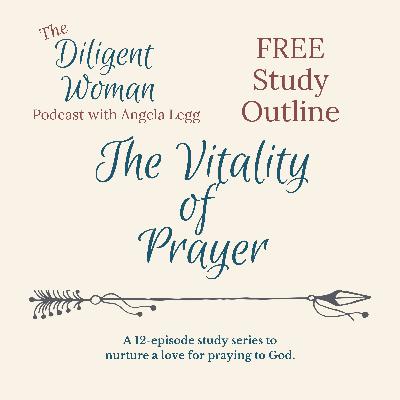Discover The Diligent Woman Podcast
The Diligent Woman Podcast

The Diligent Woman Podcast
Author: Angela Legg The Diligent Woman
Subscribed: 14Played: 152Subscribe
Share
© The Diligent Woman with Angela Legg
Description
The Diligent Woman encourages Christian women to know they are valued by God, are created for purpose, and can walk confidently in the Lord.
thediligentwoman.substack.com
thediligentwoman.substack.com
88 Episodes
Reverse
Welcome back!Today, in episode 520, we continue Esther’s cycle: looking at the prominent characters in the book of Esther. The book of Esther ends with these words:“For Mordecai the Jew was second only to King Ahasuerus, and great among the Jews and in favor with his many kinsmen, one who sought the good of his people and one who spoke for the welfare of his whole nation.” (Esther 10:3)As with Boaz, who we talked about in Episode 518, I believe Mordecai gets overlooked when a list of good examples for young men to follow gets compiled.What stands out to you from Mordecai’s story?Click the image below to sign up to get a FREE study kit to use with your study of Mordecai and other people in the Bible. https://thediligentwoman.thrivecart.com/mwotb-study-builder-kit/To put him in a timeline - Nebuchadnezzar takes Jehoiakim as a prisoner to Babylon in 597 BCNebuchadnezzar takes Jehoiachin as a prisoner to Babylon in 597 BCNebuchadnezzar then goes to war against Zedekiah which ends in those who were not killed in the war being taken to Babylon (2 Chron. 36:20) in 586 BC, the temple is destroyed. This would include the carrying away that impacted Daniel and his friends in Daniel 1.They remained captives in Babylon until the kingdom of Persia conquered Babylon in 539 BC with King CyrusIn 537 BC, Cyrus sends Zerubbabel to Jerusalem to build the temple.516 BC second Temple is completed (end of “captivity”) under Darius the GreatIn 486 BC Ahasuerus (also known as Xerxes) comes into power - Esther takes place during his reignIn 458 BC Ezra returns with a second groupIn 445 BC the third, led by Nehemiah, and final group of Jews return to Israel under King ArtaxerxesSo, the book of Esther takes place during a time when the people are not in active slavery, but aren’t all returned back home to Israel either. Mordecai and Esther both seem to have been born during the captivity. Morecai’s father (or great grandfather depending on how you read Esther 2:5-6) seems to have been taken into captivity with those exiled when Jeconiah (Jeremiah 24:1; aka Jehoiachin 2 Kings 24:6; aka Coniah Jeremiah 22:24) was taken to Babylon by Nebuchadnezzar. This would have been the first carrying away in around 597 BC. Mordecai’s uncle was also carried away or born into captivity, but had already died by the time of the events of the book. It is 114 years after the first carrying away when King Ahasuerus comes into power and the events of the book begin.OK - back to our story.Good people in a sticky situationIn the city of Susa, Persia a royal problem had arisen. The King was without a Queen. Early in his reign, King Ahasuerus spent six months celebrating the “riches of his royal glory and the splendor of his great majesty” (Esther 1:4). The end of the celebration led to his pride and anger bringing him to remove Queen Vashti from her position and banning her from ever seeing him again.When the King’s anger subsided, he remembered his behavior, but the law could not be undone. His servants propose a search be done in all the provinces (there were 127 of those!) for beautiful young virgins to be brought for the King to choose from them a new Queen. The king agrees to this.So, as young women are being found and brought to Susa for their year of beauty treatments, a young Jewish woman, named Esther was also taken to the king’s palace. Esther was being cared for by her cousin Mordecai. Mordecai’s uncle was Esther’s father. When he and his wife both died, Mordecai took Esther as his own daughter.When Esther is taken into the king’s palace, Mordecai spent every day pacing in the harem courtyard in order to get updates about Esther and how she was doing.We learn that Mordecai had commanded her to not tell people about her family or her heritage. Esther respected Mordecai, and obeyed him in this just as she had obeyed him while he was bringing her up. Long story short, Esther pleases the king and he chooses her to be his new Queen.After this, Mordecai was sitting at the king’s gate when two of the king’s guards started getting angry and planning to kill the King. Mordecai took the details of the plot to Esther and then Esther told the King in Mordecai’s name. The king’s men investigated the claim, found it to be true and hanged both conspirators on the gallows. Then the events, and the part Mordecai played, were written into the Book of the Chronicles.Bad people create bad situationsMordecai seems to work at the king’s gate on a regular occurrance. A man named Haman, who the king had promoted to be in authority over all of the princes who reported to the king, walked through the king’s gate often. Normally, all of the king’s servants would bow to him, and it says this was something the “king had commanded concerning him” (Esther 3:2). Well, Mordecai would not bow and he would not pay homage to Haman! The king’s servants tried to talk to him about this, and still Mordecai refused, stating that he was a Jew (Esther 3:4). I don’t know if the command from the king was to respect Haman’s authority and the servants chose to express that through bowing (respect for authority) and paying homage (worship) or if the command was for people to worship Haman because of his promoted position. Either way, Mordecai making the claim to being a Jew as his reason for refusing makes it seem that he, at least, saw the act of bowing and worshiping this man as something contrary to Mordecai’s allegiance to God. He has already shown respect for the King’s authority, so he doesn’t seem to be a belligerent man who refuses to submit. Whatever the exact wording of the command from the king, Haman is most certainly offended by Mordecai’s refusal to bow and pay homage. More than just offended, Haman becomes “filled with rage” and starts to form a plan for not just revenge, but annihilation.Mordecai learns about Haman’s plans when the rest of Persia does, by the decree that is sent out making it lawful to destroy all of the Jews and plunder their possessions on the 13th day of the 12th month of that year. This information rightly causes the Jews to be upset. Esther learns about the distress of her people. She sends clothes to Mordecai, in hopes that he would put off his mourning. Mordecai refuses to accept the clothes. Esther then sends one of the king’s eunuchs to go to Mordecai to find out what is going on and why. Hathach, the eunuch, finds Mordecai in front of the king’s gate. Mordecai tells Hathach what the decree said, including the amount of money Haman was donating to the king’s treasuries for the purpose of destroying the Jews. He sends a copy of the decree to Esther so she is fully aware of the situation and demands that she go before the king to plead with him for the lives of her people.Esther sends back a reply, “All the king’s servants and the people of the king’s provinces know that for any man or woman who comes to the king to the inner court who is not summoned, he has but one law, that he be put to death, unless the king holds out to him the golden scepter so that he may live. And I have not been summoned to come to the king for these thirty days.” (Esther 4:11).Between this decree and the king’s law, Esther is very reasonable to be concerned about inserting herself into things!Mordecai sends a brutal, yet wise answer: “Do not imagine that you in the king’s palace can escape any more than all the Jews. For if you remain silent at this time, relief and deliverance will arise for the Jews from another place and you and your father’s house will perish. And who knows whether you have not attained royalty for such a time as this?” (Esther 4:14).To Mordecai, it is very simple. The decree makes it more than possible that someone in the king’s household who knows Esther’s heritage will kill her. Her silence is not a guarantee of safety. The Jews WILL be delivered - of that Mordecai is certain. But he also sees an opportunity here that must at least be tried. Maybe, just maybe, Esther was allowed to become Queen as a means to provide that deliverance for the people of Israel. Courage is the only way to find out. Face what is coming and do what you can, no matter the results. Esther asks Mordecai to gather all the Jews in Susa and have them fast with her for three days. She is going to prepare spiritually, emotionally, and physically before she goes before the king. Mordecai goes and does as she commanded him.Picture that - a whole city of Jews who have been mourning the bounty on their heads will now turn their attention to fasting, and praying as those two usually went hand in hand, alongside of the Queen and her maidens. Esther knew she could count on Mordecai to do what she asked. How it must have encouraged her to know they were all fasting along with her! How it must have encouraged the people to know their Queen was going to go to battle for their lives! After three days, the Queen rises from fasting and presents herself to the King.While Esther is doing her part, Mordecai has another run in with Haman.Haman has had the honor of eating dinner with the King and Queen. He is very full of himself to have been honored this way - but then he comes across Mordecai at the king’s gate. Mordecai still does not acknowledge Haman - he doesn’t get up and he doesn’t cower before Haman. Haman is again filled with rage and goes home to complain about it to his friends and his wife. Little does Mordecai know that Haman is planning to kill him the very next day!Meanwhile, the king has trouble sleeping after the dinner with the Queen and Haman. He asks that the book of records be read to him. The passage that is chosen is the one describing when Mordecai saved the king’s life by revealing the plot of the doorkeepers to kill him. The king seeks to honor Mordecai. Through a series of events, the next morning, Mordecai finds himself being publicly honored by none other than Haman! Haman takes the king’s robe and puts it on Mordecai. He has Mordecai ride one of the king’s horses while Haman
Welcome back!Today in episode 519 we begin Esther’s cycle: looking at the prominent characters in the book of Esther. Take a minute to consider someone, who may be a somewhat unorthodox character to focus upon. He is key to our story though. His choices set the stage for most of the events. We are talking about King Ahasuerus.What stands out to you from King Ahasuerus’s story?Click the image below to sign up to get a FREE study kit to use with your study of King Ahasuerus and other people in the Bible. https://thediligentwoman.thrivecart.com/mwotb-study-builder-kit/King Ahasuerus is the King of Persia during the captivity of Judah.To put him in a timeline - Nebuchadnezzar takes Jehoiakim as a prisoner to Babylon in 597 BCNebuchadnezzar takes Jehoiachin as a prisoner to Babylon in 597 BCNebuchadnezzar then goes to war against Zedekiah which ends in those who were not killed in the war being taken to Babylon (2 Chron. 36:20) in 586 BC, the temple is destroyed. This would include the carrying away that impacted Daniel and his friends in Daniel 1.They remained captives in Babylon until the kingdom of Persia conquered Babylon in 539 BC with King CyrusIn 537 BC, Cyrus sends Zerubbabel to Jerusalem to build the temple.516 BC second Temple is completed (end of “captivity”) under Darius the GreatIn 486 BC Ahasuerus (also known as Xerxes) comes into power - Esther takes place during his reignIn 458 BC Ezra returns with a second groupIn 445 BC the third, led by Nehemiah, and final group of Jews return to Israel under King ArtaxerxesSo, Esther is during a time when the people are not in active slavery, but aren’t all returned back home to Israel either. There is no indication that King Ahasuerus is too worried about the Jews. He just continues what was being done by previous kings.OK - back to our story.A queen insults the king and loses her crown.The book of Esther begins during a time of prosperity for Persia. During King Ahasuerus’ third year of his reign he decides to hold a six month celebration of his kingdom. Lots of feasting. Lots of showing off. At the end of the six months, he again has a banquet - that lasts for SEVEN days.At the same time, his Queen, Vashti, gave a banquet for the women.On the final day of the banquet, “when the heart of the king was merry with wine”, the King decides to call for Queen Vashti in her queenly garb to show her off to all the men who are there with the king (Esther 1:11).Queen Vashti refuses to come. We aren’t told why she refuses to come - lots of reasons we can speculate about, but none we can be sure of. Just that the situation arises. So the king - drunk after spending 7 days celebrating the 6 month celebration of his riches and the splendor of his great majesty (Esther 1:4) gets embarrassed in front of all the people in the citadel in Susa (Esther 1:5).It says, “then the king became very angry and his wrath burned within him” (Esther 1:12). He calls on his seven trusted counselors and asks what can be done, “according to the law” (Esther 1:15).Interestingly, we find out later that there is a law that states anyone who comes to the king without being summoned, they are to be put to death unless the king holds out his scepter to indicate they may live (Esther 4:11). But apparently refusing to come when the king calls is not something the King has had to deal with yet, in three years of being king.Anyway - these men do not bother to tell him what the law is for the situation. Instead, one of the men suggests that her sin is so grievous, it is not only against the king but against all the princes and all the people. She has created a problem for ALL married men! Her refusal might encourage other women to look with contempt on their husbands. There will be contempt and anger throughout the land! The only way to respond is to write a NEW law, so that it cannot be repealed, that Vashti can no longer have the position of Queen, and furthermore, she is not to ever have access to the king again. Once this is done, THEN all the women will give honor to their husbands, great and small. (Esther 1:17-20).This pleases the King and the princes. An edict is sent out that “every man should be the master in his own house” (Esther 1:22).A new queen is foundBut then…”After these things, when the anger of King Ahasuerus had subsided, he remembered Vashti and what she had done and what had been decreed against her”.This remembering seems to have altered the king’s mood, because his servants suggest they find him a new woman to take Queen Vashti’s place.This was not a quick process. Each young woman had 12 months of prep before she was brought before the King (Esther 2:12). In the 7th year of his reign, in the 10th month (4 years since the events with Vashti), a young woman named Esther is brought to the King. This young woman is special (we will tell her story, Lord willing, in a few weeks). She finds favor and kindness with the King, more than all the virgins, so she is chosen to be made queen instead of Vashti.King Ahasuerus gives another great banquet for his princes and servants (much smaller guest list) and makes a holiday for the provinces and sends out gifts to the people. OK - let’s just take a second to see the difference between the events now and the ones back in year 3 of his reign. Before the incident with Vashti, the King wants to show off “his great majesty”. The incident with Vashti comes about when he was drunk with all his wine and bragging, and implied flattery from the dignitaries who were feasting along with him. His intoxication level leads to a rash response and a very bad temper.Now, 4 years later and regretting (I believe that is implied in Esther 2:1) what was done before, he is faced with another woman and another celebration. This time, the celebration is more about Esther and her becoming Queen. The way the banquet is done it is more of a gift to the whole country rather than a “look at me and how wonderful I am” type of celebration the first event was.It says “he loved Esther more”, OK - it has only been one night, he liked her more than all the other women. He was drawn towards her more than all the others. But this caused him to show her “favor and kindness”. This King is not making it all about him - he is making it about her. A softer gentler King Ahasuerus. I find it fascinating that God shows us this king’s progress (after all, the kingdom of Persia is not the focus of God’s story in the scriptures).A plot to kill the king is foiledWhile all of this was going on, Esther’s uncle Mordecai, became aware of a plot to kill the King. Mordecai told Esther about it and Esther passed the message long to the King. There is an investigation and the men were found guilty and were hanged on the gallows. The events were written into the Book of the Chronicles.A Vain Man is Given too much powerFast forward a few years, the king promotes a man named Haman to be over all of his princes. At the end of the King’s twelfth year (5 years since Esther was made queen), this man brings a concern to the King. Haman says there are people all through the kingdom who live by different laws and they do not observe king’s laws. “It is not in the king’s interest to let them remain.” (Esther 3:8). The solution Haman offered? “Let them be destroyed” and even more so, Haman will donate 10,000 talents of silver to the king’s treasury to pay those who will do this work (Esther 3:9). Now that’s commitment!The king’s answer to his trusted advisor? Here is my signet ring, the money is yours, do with the people as you please (Esther 3:11).So, on the 13th day of the 1st month (of the 13th year) letters are sent out telling the provinces “to destroy, to kill, and to annihilate all the Jews in one day” - the 13th day of the 12th month (of the 13th year). Note - it is almost a YEAR before the decree will take effect). It says that while the king and Haman sat down to drink, the city of Susa was in confusion (Esther 3:15).Going back to our timeline - the Jews have been granted quite a bit of leniency! They are allowed to go back to Israel. They are not seen as captive slaves anymore. Thus far in the book, the Jews seem to intermingle so well among the Persians that their nationality isn’t even noticed. Esther was able to keep it to herself that she was a Jew. No one asked. No one prodded. It was known by the king’s servants that Mordecai was a Jew. It was the only reason they could give for why he acted differently towards Haman (Esther 3:4). It wasn’t offered as though that was a bad thing. Haman was the one who took it personally (we will discuss him more later). Then the king suddenly sends out this letter telling everyone these people who have lived among the Persians ever since Persia took over Babylon are to be completely destroyed! In the early days of his reign, King Ahasuerus was hearing about accusations against the Jews in Jerusalem (Ezra 4:6), but nothing was done about it. So for him to take this position now would be very strange to the people of Persia, but especially in Susa where Jews were known to be and were accepted by the people.One day the king is in his inner court on his throne when he sees Queen Esther standing waiting to see if he will agree for her to approach him. He is pleased to see her and extends his scepter so all know she is welcome. He shows his concern for her and offers her up to “half the kingdom” if she wants to request it (Esther 5:3). Esther doesn’t ask for anything so dramatic, she simply invites him and Haman to a banquet she has prepared for them.The King’s response? “Bring Haman quickly that we may do as Esther desires.” (Esther 5:5).The king attends this banquet and asks again what she might want to ask of him. She asks if he will come again for another banquet tomorrow, and then she will make her request known. He apparently agrees.During the night, the king has trouble sleeping. So he asked that the book of the chronicles be read to him. The section that was r
Welcome to The Diligent Woman Podcast.In Season 5 study along as Angela explores the lives of the Men & Women from Scripture: Learning to Live from the Great Cloud of Witnesses.In today’s episode spend some time considering Boaz from the book of Ruth. Come along and find encouragement to trust in God in every season of life.What stands out to you from Boaz’s story?Click the image below to sign up to get a FREE study kit to use with your study of Boaz and other people in the Bible. https://thediligentwoman.thrivecart.com/mwotb-study-builder-kit/Today we finish our look at the people in Ruth’s story.You can hear Naomi and Ruth’s parts of the story in episode 516 and 517. I will link to them in the show notes as well. Let’s focus on the man in the story, Boaz.Boaz enters our story initially as the owner of the field where Ruth begins to glean barley (Ruth 2:3).Boaz comes from Bethlehem, presumably, to inspect his fields (Ruth. 2:4).First thing to notice is how respectfully he addresses his reapers. It may have been a common greeting, but it certainly is a respectful one. It also indicates a like-mindedness between him and his workers.Boaz notices Ruth in his field and asks about her. The reapers give a report of who she is and how she came to be with their gleaners. Boaz tells Ruth to be sure to stay in his fields, stay with his maids and to drink from the water that is drawn by his servants. In short, he provides for her protection and her every need while she is working to provide for herself and Naomi.I also find it interesting that upon learning that she is a kinswoman by marriage, he does not offer to just take care of her and Naomi. He doesn’t tell her to go home and let him send grain to her as she needs it. He does nothing to stop her from working, he simply makes her work easier. This is actually very respectful. He is honoring her efforts, as we learn later he is honoring family connections without crossing potential barriers, and he isn’t creating a sense of entitlement for Ruth. There is nothing condescending in the way he speaks to her. In fact, when she asks why he is being so kind to her, a foreigner, Boaz goes on to commend her for her choices, her willingness to work, and for choosing to trust God (Ruth 2:11-12).Boaz goes on to make sure that Ruth eats well and then directs his servants to allow her to glean further into the field than would be normal for a foreigner who is seeking charity (Ruth 2:15-16).Boaz’s kindness and good character is impressive.Ruth goes home and tells all of this to Naomi. Naomi sees the hand of God in the blessings from Boaz and encourages Ruth to do as he says until the end of the harvest, which will be several weeks yet (Ruth 2:22-23).When the harvest is finally coming to an end, Naomi starts to plan for how to provide for Ruth’s future. She encourages Ruth to make it clear to Boaz that she is putting herself under his authority and trusting him with her life.When Boaz discovers Ruth sleeping at his feet, he is touched that she has chosen him, who is older, over a man closer to her in age (Ruth 3:10). Boaz promises to determine her prospects so her path forward will be clear.He again protects her by stopping the gossiping among his servants. Boaz does not want to do anything that will harm this young woman’s reputation as a “woman of excellence” (Ruth 3:11, 14).The next morning he sends her home with more grain. Now it is time for Naomi and Ruth to wait and see what Boaz will do.In Ruth 4, we see Boaz’s character highlighted again. This man is very careful to abide by the law, but he is also clever. He isn’t flippant about making sure of the situation for Ruth, the widow of the son of Elimelech.He shows wisdom in starting with the property that is in question. The man who has the first claim is quick to say he will redeem the land that was Elimelech’s. Boaz says, “But wait” - the land also comes with the widow of Elimelech’s son and sons will need to be raised up for the deceased’s inheritance.Now, this closer relative now hesitates about redeeming the property and lives in question. If he were to take on Ruth and to raise up sons, but to the name of the deceased rather than his own, it would interfere with the inheritance he currently holds. He tells Boaz that he cannot redeem them so Boaz may do so if he chooses as is his right as next in line.Boaz then makes it very clear to everyone present what has happened. There is not going to be a question about his right or Ruth’s reputation in regards to all of this. Boaz declares that he is taking on all the property of Elimelech, Mahlon and Chilion, he will marry Ruth, the widow of Mahlon, and will raise up sons so the family name can continue. All the witnesses acknowledge the exchange and wish Boaz well with his new family.Boaz marries her and the Lord blesses her with a son!It is noted in Ruth 4:14 that Boaz is just as much Naomi’s redeemer as he is for Ruth. The women pray that he will be a “restorer of life and a sustainer of your old age” because of his relationship with her good daughter-in-law, Ruth. God has provided for both of these women through this godly man, Boaz.Take a look at 1 Timothy 3:1-7, the qualifications of those who would be Elders in a congregation:* Above reproach* Husband of one wife* Temperate* Prudent* Respectable* Hospitable* Able to teach* Not addicted to wine or pugnacious* Gentle* Peaceable* Free from the love of money* Manages his own household well* Not a new convert* Good reputation outside of the congregationI don’t know that enough attention is given to Boaz as an example for men of all ages. It is common to hear, “Grow up to be a Joseph! Grow up to be a David!”Absolutely, quality examples for young men. But Boaz is an example of a man of wealth, business, and reputation in the area who is also a man of godly character. Abraham is not the only wealthy man to follow after God!Boaz was kind when he didn’t have to be. Ruth was already being blessed by him through gleaning the corners of his fields. He was doing all the law required of him.Once he knew her relationship to him, he technically didn’t owe her anything because she was someone else’s responsibility, technically.He could have been kind but dismissive.He didn’t have to protect her life and her reputation by giving her a safe place among his own maidens.He didn’t have to provide her with extra food. She was working hard. Paying her the rightful amount of what was ground from her gleanings would have been enough.Boaz was an altogether godly man.He is an excellent example of the kind of man who is capable of leading others in godly living. Boys - it CAN be done. God makes no expectations that are not possible to meet. Be a Boaz.Mentioned in the episode:https://thediligentwoman.substack.com/p/s5-episode-517-ruth?r=2wxszdhttps://thediligentwoman.substack.com/p/s5-episode-516-naomi?r=2wxszdMore Studies from The Diligent Woman:Study the Bible one book at a time through Scripture Writinghttps://bythebookbiblestudy.substack.comStudy Themes in the Bible Using Scripture Writinghttps://scripturewriting.comMore from The Diligent Woman Podcast:https://thediligentwomanpodcast.comThe Diligent Woman is a reader-supported publication. To receive new posts and support my work, consider becoming a free or paid subscriber.https://thediligentwoman.substack.com Get full access to The Diligent Woman at thediligentwoman.substack.com/subscribe
Welcome to The Diligent Woman Podcast.In Season 5 study along as Angela explores the lives of the Men & Women from Scripture: Learning to Live from the Great Cloud of Witnesses.In today’s episode spend some time considering Ruth and how her reputation of good character made all the difference.What stands out to you from Ruth's story?Click below to sign up to get a FREE study kit to use with your study of Naomi and other people in the Bible.https://thediligentwoman.thrivecart.com/mwotb-study-builder-kit/More Studies from The Diligent Woman:Study the Bible one book at a time through Scripture Writinghttps://bythebookbiblestudy.substack.comStudy Themes in the Bible Using Scripture Writinghttps://wordsonmyheart.substack.comMore from The Diligent Woman Podcast:https://thediligentwomanpodcast.comThe Diligent Woman is a reader-supported publication. To receive new posts and support my work, consider becoming a free or paid subscriber.https://thediligentwoman.substack.com Get full access to The Diligent Woman at thediligentwoman.substack.com/subscribe
Welcome to The Diligent Woman Podcast.In Season 5 study along as Angela explores the lives of the Men & Women from Scripture: Learning to Live from the Great Cloud of Witnesses.In today’s episode spend some time considering Naomi from the book of Ruth. Come along and find encouragement to trust in God in every season of life.What stands out to you from Naomi’s story?Click below to sign up to get a FREE study kit to use with your study of Naomi and other people in the Bible.https://thediligentwoman.thrivecart.com/mwotb-study-builder-kit/Today we begin to look at the people in Ruth’s story.Naomi is where the story begins. Her life circumstances set the stage for everything that comes after.During the time of the judges there was a famine in Israel. Naomi’s husband, Elimelech, took his wife and their two sons, Mahlon and Chilion, to Moab. They stayed in Moab for some time, at least ten years (Ruth 1:4). Going to another country during a famine is not an unusual thing in Scripture, nor is staying this long. Elimelech died and Mahlon and Chilion married Moabite women; Orpah and Ruth. Then both Mahlon and Chilion died.Naomi felt keenly the loss of her husband and both her sons.Naomi learns the famine is over in Israel, and she determines to go back home to Bethlehem. When she is prepared to leave, she tells Orpah and Ruth to go back to their mothers and to find comfort with new husbands.Her reasoning for sending them back to their families is because she doesn’t have any security to offer them. She has no more sons for them to marry. She believed herself too old to marry, but even if she did, it was unreasonable for them to wait for her to have more sons! They certainly shouldn’t choose to remain unmarried in order to stay with her!Naomi expresses her perception of the season she is walking through in Ruth 1:13.She says, “No, my daughters; for it is harder for me than for you, for the hand of the Lord has gone forth against me.”Naomi sees her circumstances as a difficulty to be avoided, if possible. The girls should return home and build new lives.The girls obviously loved Naomi. This is an in-law relationship that is a good one. The girls cried again at Naomi’s words. Orpah ends up deciding to do as Naomi suggests and goes back to her people. Ruth, however, insists on staying with Naomi. The beautiful statement she makes is one that is often used in marriage ceremonies. Ruth tells Naomi, “I will go, and where you lodge, I will lodge. Your people shall be my people, and your God, my God. Where you die, I will die, and there I will be buried.” It speaks very highly of Naomi that Ruth is willing to put off all of her Moabite ancestry to become a part of the nation and life Naomi represents.Naomi respects Ruth’s determination and the two women go on to Bethlehem together.Their arrival in Bethlehem causes quite a stir! This too speaks volumes about Naomi. After more than a decade, she returns and the people immediately notice.In response to their questions, Naomi again shares how she sees the season of life that she is in now. In Ruth 1:20, she says, “Do not call me Naomi; call me Mara, for the Almighty has dealt very bitterly with me.”It is worth noting that “Naomi” means “pleasant”, while “Mara” means “bitter”.I do not believe that her assessment of this season is a lack of faith. It is simply a statement of facts and how she feels about them. The Bible is full of people who had times of depression, despair, concern, and weariness. They were never called out for having these reactions to the events in their lives. The lesson we learn from Job, David, Elijah, Hannah, and the Lord Jesus Christ (and others) is to take those heavy feelings to the Lord and trust Him to care for you through them.It is not wrong that there is “a time to kill and a time to heal; a time to tear down and a time to build up. A time to weep and a time to laugh; a time to mourn and a time to dance” (Eccl. 3:3-4). It is not wrong that suffering should move us to prayer instead of singing (James 5:13). Sometimes the season is a long time; things just may not be sunshine and rainbows. She could appreciate her daughters AND be sad about having no husband or sons anymore. She could be glad to be back home in Israel where she acknowledges God is bringing blessings (Ruth 1:6) AND be concerned how a lonely widow, with no close family, was going to provide for herself, and now a daughter-in-law. These are just what the circumstances were of her life at the time.As we will see, the next few months will bring about another change in seasons for both of these women.Naomi and Ruth have arrived just as the barley harvest is beginning (Ruth 1:22). Ruth takes the opportunity to provide for herself and her mother-in-law by seeking to gather barley behind the reapers in the fields. She does so in the field of Boaz, who is a relative of Naomi’s husband, Elimelech.Ruth comes to the attention of Boaz. When he learns who she is, he tells her to only glean from his fields. He promises she will not be bothered. He even goes so far as to instruct that she be allowed to gather further in the field than just the corners that were left for the poor (Ruth 2:15-16).What a blessing for these two women!When Ruth brings home a bounty of grain, Naomi starts asking questions about how things went. When she discovers who owns the field and has shown such kindness to Ruth, Naomi praises God saying, “May he be blessed of the Lord who has not withdrawn his kindness to the living and to the dead.”Naomi recognizes the good in this situation to protect Ruth in her efforts. Naomi suggests that while Ruth does as Boaz has told her, Ruth should stay close to the other maids so that Ruth will not come to any harm by being alone in the fields.Ruth obeys Naomi in this and continues to work in Boaz’s fields until the end of the barley harvest, which usually lasted about seven weeks and the end of the wheat harvest, which would be another four to six weeks. So Ruth spent about three months gleaning in the fields of Boaz.As this time is coming to an end, Naomi decides to try to encourage a change in situation for Ruth.She tells Ruth to clean herself up, go down to where Boaz is working - but don’t disturb him while he is working! (Good lesson for all of us. Timing is everything.) When his day is finished, place yourself at his feet and wait for him to tell you what to do.Ruth asks Boaz to be her protector and he is honored by her request. He acknowledges that there are some things to work out to accomplish the request, and sends her home to Naomi with a gift.When Ruth gets home, Naomi interprets his words, the events, and the gift he sent to mean that he has every intention to get the matter settled that very day (Ruth 3:18). Turns out, she was right!Boaz jumps through the legal hurdles and marries Ruth. In the proper passage of time, their union is blessed with a son.The women rejoice with Naomi over this change in circumstances. This son, Naomi’s grandson, represents redemption for Naomi. She is no longer alone (Ruth 4:14-15)! Naomi becomes a nurse to the baby and the women name him Obed (Ruth 4:16-17).Naomi shows us a steadfast woman who leaned on the Lord in times of trouble. We can know this because of Ruth’s willingness to be identified with Naomi’s God rather than the gods of Moab.Naomi was a kind woman who didn’t let the differences between herself and her daughters-in-law be a problem. Rebekah was not as happy with her foreign-born daughters-in-law (Gen. 27:46) and we are not told why. Moab had been a nation in conflict with Israel from the beginning. But Moab had also become a place of protection during the famine. Whatever the circumstances, Naomi’s character shows she wasn’t one to be hateful toward these women just because they were Moabites.Naomi was a woman of strength who didn’t allow her difficulties to bring her low. We don’t know how long her sons were gone before she learned of the end of the famine in Israel. Her grief did not keep her from making the move back home. Her faith trusted in the Lord to provide - through the famine being lifted and in the providing of a protector for Ruth.Naomi shows us a wonderful example of an older woman living life with kindness and grace. The Lord blessed her just as much as Ruth and Boaz when he brought her out of a season of sorrow into a season of living.More Studies from The Diligent Woman:Study the Bible one book at a time through Scripture Writinghttps://bythebookbiblestudy.substack.comStudy Themes in the Bible Using Scripture Writinghttps://wordsonmyheart.substack.comMore from The Diligent Woman Podcast:https://thediligentwomanpodcast.comThe Diligent Woman is a reader-supported publication. To receive new posts and support my work, consider becoming a free or paid subscriber.https://thediligentwoman.substack.com Get full access to The Diligent Woman at thediligentwoman.substack.com/subscribe
Welcome to The Diligent Woman Podcast.In Season 5 study along as Angela explores the lives of the Men & Women from Scripture: Learning to Live from the Great Cloud of Witnesses.In today’s episode spend some time considering Abraham’s Servant from Genesis 24. Join me as we look at his faith and his trustworthiness as a servant in doing the will of his master, Abraham.Episodes mentioned:What lessons can you take from Abraham’s Servant’s story?Click the image below to sign up to get a FREE study kit to use with your study of Abraham’s servant and other people in the Bible.More Studies from The Diligent Woman:Study the Bible one book at a time through Scripture WritingStudy Themes in the Bible Using Scripture WritingMore from The Diligent Woman Podcast:The Diligent Woman is a reader-supported publication. To receive new posts and support my work, consider becoming a free or paid subscriber. Get full access to The Diligent Woman at thediligentwoman.substack.com/subscribe
Welcome to The Diligent Woman Podcast.In Season 5 study along as Angela explores the lives of the Men & Women from Scripture: Learning to Live from the Great Cloud of Witnesses.In today’s episode spend some time considering Melchizedek, the king of Salem. Explore what God shares about Melchizedek the man and see how he fits into the story of Salvation for mankind.Verses about Melchizedek:Genesis 14:18-20Hebrews 7:1-4Verses related to Melchizedek’s story:Psalm 110Hebrews chapters 5, 6, and 7Episodes mentioned:What lessons can you take from Melchizedek’s story?Click the image below to sign up to get a FREE study kit to use with your study of Melchizedek and other people in the Bible.More Studies from The Diligent Woman:Study the Bible one book at a time through Scripture WritingStudy Themes in the Bible Using Scripture WritingMore from The Diligent Woman Podcast:The Diligent Woman is a reader-supported publication. To receive new posts and support my work, consider becoming a free or paid subscriber. Get full access to The Diligent Woman at thediligentwoman.substack.com/subscribe
Welcome to The Diligent Woman Podcast.In Season 5 study along as Angela explores the lives of the Men & Women from Scripture: Learning to Live from the Great Cloud of Witnesses.In today’s episode spend some time considering Ishmael. Dive into what God shares about Ishmael and the promises made to him.Thanks for reading The Diligent Woman! This post is public so feel free to share it.Click the image below to sign up to get a FREE study kit to use with your study of Seth and other people in the Bible.The Diligent Woman is a reader-supported publication. To receive new posts and support my work, consider becoming a free or paid subscriber. Get full access to The Diligent Woman at thediligentwoman.substack.com/subscribe
Welcome to The Diligent Woman Podcast.In Season 5 study along as Angela explores the lives of the Men & Women from Scripture: Learning to Live from the Great Cloud of Witnesses.In today’s episode spend some time considering Abraham after the birth of his son, Isaac. . Come learn from the second half of Abraham’s story.Verses about Abraham:Genesis 21Genesis 22Genesis 23Genesis 24:1-8Genesis 25:1-10Hebrews 11:8-19Nehemiah 9:7-8Psalm 105Isaiah 41:8Isaiah 51:2John 8:39-40Acts 7:1-53Romans 4-5:11Galatians 3:1-29James 2:14-26What lessons can you take away from these events in Abraham’s life?Click the image below to sign up to get a FREE study kit to use with your study of Abraham and other people in the Bible.Find more Bible Studies in :More from The Diligent Woman Podcast:Season 2 A Woman of Valor is…Season 3 That You May UnderstandSeason 4 The Vitality of PrayerBible Studies for young women or young men, ages 9-99To Be a Handmaid of the LordTo Be a Man of God Get full access to The Diligent Woman at thediligentwoman.substack.com/subscribe
Welcome to The Diligent Woman Podcast.In Season 5 study along as Angela explores the lives of the Men & Women from Scripture: Learning to Live from the Great Cloud of Witnesses.In today’s episode spend some time considering Lot’s Wife and two daughters. There isn’t much said about them, but their legacy is left for our learning.The Diligent Woman is a reader-supported publication. To receive new posts and support my work, consider becoming a free or paid subscriber.Verses about Lot’s Wife and daughters:Genesis 19:1-38Luke 17:28-37What lessons can you take away from these women and use in your life today? Are there warnings you need to heed?Click the image below to sign up to get a FREE study kit to use with your study of Lot’s Wife and daughters as well as other people in the Bible.More Witnesses to Learn from:Find more Bible Studies in The Diligent Woman ShopMore from The Diligent Woman Podcast:Season 2 A Woman of Valor is…Season 3 That You May UnderstandSeason 4 The Vitality of PrayerBible Studies for young women or young men, ages 9-99To Be a Handmaid of the LordTo Be a Man of GodThe Diligent Woman is a reader-supported publication. To receive new posts and support my work, consider becoming a free or paid subscriber. Get full access to The Diligent Woman at thediligentwoman.substack.com/subscribe
Welcome to The Diligent Woman Podcast.In Season 5 study along as Angela explores the lives of the Men & Women from Scripture: Learning to Live from the Great Cloud of Witnesses.In today’s episode spend some time considering Lot and his story.Lot is not always held in very high regard. The circumstances of his story cause many to judge him harshly for his choices. But the truth is, the very things we condemn him for God never did. Explore Lot's story and see if what you think you know about him matches all that God's word has to say. Today’s episode explores Genesis 11:27-31; 12:4-5; 13:1-13; 14:1-12, 16; 19:1-30; Deut. 2:9, 19; Luke 17:28-37; 2 Peter 2:4-11Click here to sign up to get a FREE study kit to use with your study of Seth and other people in the Bible. https://thediligentwoman.thrivecart.com/mwotb-study-builder-kit/More Witnesses to Learn from:Lessons from Eve https://thediligentwoman.substack.com/p/eve?r=2wxszdLessons from Adam https://thediligentwoman.substack.com/p/s5-episode-501-adam?r=2wxszdLessons from Cain https://thediligentwoman.substack.com/p/s5-episode-502-cain?r=2wxszdLessons from Abel https://thediligentwoman.substack.com/p/s5-ep-503-abel?r=2wxszdFind more Bible Studies in The Diligent Woman ShopMore from The Diligent Woman Podcast:Season 2 A Woman of Valor is…Season 3 That You May UnderstandSeason 4 The Vitality of PrayerBible Studies for young women or young men, ages 9-99To Be a Handmaid of the LordTo Be a Man of GodThe Diligent Woman Podcast is a reader-supported publication. To receive new posts and support my work, consider becoming a free or paid subscriber. Get full access to The Diligent Woman at thediligentwoman.substack.com/subscribe
Welcome to The Diligent Woman Podcast.In Season 5 study along as Angela explores the lives of the Men & Women from Scripture: Learning to Live from the Great Cloud of Witnesses.In today’s episode spend some time considering Abram in the time before his son Isaac was born.Abram is a cornerstone of the story of God being a keeper of His promises. Explore how God walked with Abram through a move to a new country, times of physical struggle, times of war, and emotional upheavals. See how Abram’s (later changed to Abraham) faith grew as he witnessed God’s steadfastness over and over again. Today’s episode explores Genesis 11:27-18:33 and Genesis 20:1-18.Click here to sign up to get a FREE study kit to use with your study of Seth and other people in the Bible. https://thediligentwoman.thrivecart.com/mwotb-study-builder-kit/More Witnesses to Learn from:Lessons from Eve https://thediligentwoman.substack.com/p/eve?r=2wxszdLessons from Adam https://thediligentwoman.substack.com/p/s5-episode-501-adam?r=2wxszdLessons from Cain https://thediligentwoman.substack.com/p/s5-episode-502-cain?r=2wxszdLessons from Abel https://thediligentwoman.substack.com/p/s5-ep-503-abel?r=2wxszdhttps://thediligentwoman.substack.com/p/s5-ep-504-seth?r=2wxszdFind more Bible Studies in The Diligent Woman ShopMore from The Diligent Woman Podcast:Season 2 A Woman of Valor is…Season 3 That You May UnderstandSeason 4 The Vitality of PrayerBible Studies for young women or young men, ages 9-99To Be a Handmaid of the LordTo Be a Man of GodThe Diligent Woman Podcast is a reader-supported publication. To receive new posts and support my work, consider becoming a free or paid subscriber. Get full access to The Diligent Woman at thediligentwoman.substack.com/subscribe
The Diligent Woman is a reader-supported publication. To receive new posts and support my work, consider becoming a free or paid subscriber.You can find this lesson, and 30 others, in 31 Days of Women from Scripture Vol 1Lessons from SarahIn scripture we read of Sarai, whose name was changed by God to Sarah. "Sarai" in the Hebrew means "princess". "Sarah" means "noblewoman". The change points back to the change in her husband's name, from Abram to Abraham. This woman is becoming mother to a nation of people. In essence, God is making her and Abraham the King and Queen of a new dynasty - a spiritual dynasty.Sarah, for those professing to follow Christ, is OUR mother, in spirit. She represents our freedom from the bondage of sin (Gal. 4:21-31). 1 Peter 3:6 says, "just as Sarah obeyed Abraham, calling him lord, and you have become her children if you do what is right without being frightened by any fear." (NASB) Other translations say "whose daughters you are" (NKJV, KJV). God wants us to be like her. He wants the apple to not fall far from the tree, so to speak.So, how do we become like Sarah? Study this lesson and learn about her. Yes, she was a great woman. She was a woman with struggles - unable to bear children for her husband. She made bad decisions based on her emotions. But she made GOOD decisions, and she was such a wife to Abraham that God tells all wives to imitate her.Explore Sarah's life in this lesson, then come back and share what your favorite lesson from the study.Enjoy!For more studies like this - check out "To Be a Handmaid of the Lord"There are many examples of God using circumstances to accomplish His will. What I mean by that is there is nothing we can do that will get in the way of God accomplishing His will. What we do ourselves may not be His will, but He will use the outcome to meet His purposes. In Romans 9:3-13, Paul makes this very point. He is telling the Roman Christians that God has adopted the Gentiles along with the Jews. There were many teachers who were saying that only Jews could be Christians because they were descended from Abraham. In verses 7-9 we read, "nor are they all children because they are Abraham's descendants, but: 'through Isaac your descendants will be named.' That is, it is not the children of the flesh who are the children of God, but the children of the promise are regarded as descendants. For this is the word of promise: 'At this time I will come, and Sarah shall have a son.'" It was not the blood, or the flesh, that decided the relationship with God. It was the PROMISE that God made that determined who the children of God would be.1 Corinthians 1:18-31 teaches about the wisdom of the world versus the wisdom of God. Over and over men think that God's way is foolishness, when it really is wise. It did not make sense to the Jews that Gentiles could be included, because their "wisdom" was not spiritual - it was physical. Sarah is an example for us of God using circumstances to accomplish His will in ways that men just do not understand at first.In 1 Peter 3:5-6 women are told to be like Sarah, "For in this way [adorning oneself with a gentle and quiet spirit] in former times the holy women also, who hoped in God, used to adorn themselves, being submissive to their own husbands; just as Sarah obeyed Abraham, calling him lord, and you have become her children if you do what is right without being frightened by any fear." Her adornment, her jewelry of choice, was a gentle and quiet spirit, being willing to recognize and submit to the authority of her husband. She is lauded in Hebrews 11:11 for having the faith to be with her husband, while being "beyond child-bearing", so that she could conceive her promised son. (No, sex is not only for the "younger" people.) She did not give up on that aspect of her marriage when it did not, literally, bear fruit.This woman was respectful and full of strong faith. But, Sarah did NOT always have good days!With two different men the Lord had to protect her reputation as a "one man woman" so the lineage of the promised son was not in question. First with the Pharaoh of Egypt (Gen. 12:10-20) when she was 65 years old, and again with Abimelech the king of Gerar (Gen. 20:1-18) when she was 89 years old. Sarah went along with Abraham's half-truth and did not tell these men she was Abraham's wife. Even though the men were mistaken in what they knew, she was still Abraham's wife, and they did not have a right to her. Both men go to great lengths to make sure others are aware that Sarah's virtue was intact (Gen. 12:20; Gen. 20:14-16) Sarah did not make the right choices here, she kept silent because of Abraham's fears (Gen. 20:11). His fears allowed her to be put into a situation that was not good for her. Good thing God protected everyone!It was going to matter whether or not the world knew for sure who sired Isaac. God would not allow Abraham's and Sarah's poor decisions to get in the way of that. He kept her reputation for her when she and her husband were not being careful with it themselves. As women today, even though we are not appointed to bear a child of promise like Isaac, we need to be aware that our reputation is important to the Lord and it should be important to us!This does not make a point about Sarah, but I love in Genesis 20:3 where God tells Abimelech in a dream, "Behold, you are a dead man because of the woman whom you have taken, for she is married." Can you imagine being asleep and having that said to you in a dream? That would wake you up! Who says the Bible is dry reading? God is the Master of drama!Also, I note her age at each time, because our society has us believing that women of 65 or 89 are not to be considered desirable or beautiful. Supposedly they are past that time of their life. Not so! A woman who is found to be beautiful in this time of life is said to be "amazingly youthful looking". We need to start recognizing our natural beauty at whatever age! We need to be caring for ourselves in such a way that we ARE able to have these blessings far into our later years. I am afraid that we have denied ourselves a great deal of LIFE while on this earth because we have given things up that ought not to have been given up.Now, in the middle of all of this, Sarah got it into her head that the way for Abraham to have that son of promise would be for a servant woman to bear his child and Sarah claim it as her own (Gen. 16:1-2). Notice verse 2 says, "And Abram listened to the voice of Sarai." Does that remind you of Genesis 3:17? Abraham had a choice here as much as Sarah did. They both failed to make the correct one. The obvious problem here is that God fulfills His promises - men do not fulfill them for Him. Ishmael would be born of Hagar, but God would not accept him. God protected Ishmael and made him a great nation (Gen. 16:7-14; Gen. 25:12-18), he just was not the nation of promise.Have you ever considered that all of the turmoil in the Middle East began with Sarah's decision? Ishmael's people became the Arabs to the East of Israel. We are still watching their family rivalry today! Our decisions NEVER affect ONLY ourselves. Every decision we make, good, bad, or indifferent is going to make a difference in someone else's life as well as our own. Be careful what you do!We learn a bit about Sarah through her dealings with Hagar. Sarah was impatient about the son that would fulfill the promise. When Hagar despises Sarah because Hagar was able to carry a child for Abraham and Sarah was not - Sarah first turns to blame Abraham. He tells her this is her affair not his (again, sounding like Adam and Eve) and to deal with Hagar as she sees fit. So Sarah proceeds to deal so harshly with Hagar that Hagar runs away. Hagar trusts God enough to obey Him and return to submit to Sarah. This put she and Ishmael back under Abraham's protection. Oddly, we do not hear how Sarah responds to her return. But when Ishmael is around fourteen years old, after the birth of Isaac, Sarah is very quick to remove Ishmael because she saw him "mocking" or playing. She does not seem to have moved beyond her frustration with the situation she had created, even after 14 years! She is in her nineties now, and still bearing a grudge. God used her moment of unpleasantness as a vehicle to get Ishmael out of the way for Isaac, but it did not mean her behavior was right. Psalm 27:14 says, "Wait for the Lord; Be strong and let your heart take courage; Yes, wait for the Lord." Sarah forgot to wait.Sarah lived until she was 120 years old. Isaac will be 30 years old at this time. Nothing is told to us of her mothering. We know that her husband mourned and wept for her after she died (Gen. 23:1-2). Ten years later Isaac marries Rebekah and only then "thus Isaac was comforted after his mother's death." (Gen. 24:67). She was a woman who was loved by her husband and her son. That says a great deal about her. Her moments of selfishness and bitterness with Hagar were not her every day. They were moments when she did not have herself in check. Can you sympathize with that? I sure can. I can also be hopeful in the knowledge that despite those bad days - and they were such that God chose to share them with us - Sarah is one I am to imitate.Remember how God summed up Sarah's life (Hebrews 11:11; 1 Peter 3:1-6). Sarah is an example to us of many things, but one of the most important is God keeping His promises. This is a thread that runs from Genesis through Revelation. It is brought to fruition in Christ's death and resurrection. We need to understand and KNOW this concept. GOD KEEPS HIS PROMISES. We see in Galatians 4:21-31 how God uses Sarah and Hagar to make this point, and to drive home the FREEDOM found in His promise of salvation through Jesus Christ. In verse 23, Ishmael is said to be a son "according to the flesh" and Isaac is the son "through the promise". Hagar's children go on to remain in slavery, while Sarah's children are free. Freedom is found in doi
Welcome to The Diligent Woman Podcast.In Season 5 study along as Angela explores the lives of the Men & Women from Scripture: Learning to Live from the Great Cloud of Witnesses.In today’s episode spend some time considering Abram in the time before his son Isaac was born.Abram is a cornerstone of the story of God being a keeper of His promises. Explore how God walked with Abram through a move to a new country, times of physical struggle, times of war, and emotional upheavals. See how Abram’s (later changed to Abraham) faith grew as he witnessed God’s steadfastness over and over again. Today’s episode explores Genesis 11:27-18:33 and Genesis 20:1-18.Click here to sign up to get a FREE study kit to use with your study of Seth and other people in the Bible. https://thediligentwoman.thrivecart.com/mwotb-study-builder-kit/More Witnesses to Learn from:Lessons from Eve https://thediligentwoman.substack.com/p/eve?r=2wxszdLessons from Adam https://thediligentwoman.substack.com/p/s5-episode-501-adam?r=2wxszdLessons from Cain https://thediligentwoman.substack.com/p/s5-episode-502-cain?r=2wxszdLessons from Abel https://thediligentwoman.substack.com/p/s5-ep-503-abel?r=2wxszdhttps://thediligentwoman.substack.com/p/s5-ep-504-seth?r=2wxszdFind more Bible Studies in The Diligent Woman ShopMore from The Diligent Woman Podcast:Season 2 A Woman of Valor is…Season 3 That You May UnderstandSeason 4 The Vitality of PrayerBible Studies for young women or young men, ages 9-99To Be a Handmaid of the LordTo Be a Man of GodThe Diligent Woman Podcast is a reader-supported publication. To receive new posts and support my work, consider becoming a free or paid subscriber. Get full access to The Diligent Woman at thediligentwoman.substack.com/subscribe
Welcome to The Diligent Woman Podcast.In Season 5 study along as Angela explores the lives of the Men & Women from Scripture: Learning to Live from the Great Cloud of Witnesses.In today’s episode spend some time considering Noah and the powerful lesson we can learn from his life.Noah ‘s story is really a story about God’s relationship with mankind. We learn about Noah in the context of rest of mankind bringing God to regret having created them at all. Join Angela as she explores all of the information given about Noah and a bit about his sons.Click here to sign up to get a FREE study kit to use with your study of Seth and other people in the Bible. https://thediligentwoman.thrivecart.com/mwotb-study-builder-kit/More Witnesses to Learn from:Lessons from Eve https://thediligentwoman.substack.com/p/eve?r=2wxszdLessons from Adam https://thediligentwoman.substack.com/p/s5-episode-501-adam?r=2wxszdLessons from Cain https://thediligentwoman.substack.com/p/s5-episode-502-cain?r=2wxszdLessons from Abel https://thediligentwoman.substack.com/p/s5-ep-503-abel?r=2wxszdhttps://thediligentwoman.substack.com/p/s5-ep-504-seth?r=2wxszdFind more Bible Studies in The Diligent Woman ShopMore from The Diligent Woman Podcast:Season 2 A Woman of Valor is…Season 3 That You May UnderstandSeason 4 The Vitality of PrayerBible Studies for young women or young men, ages 9-99To Be a Handmaid of the LordTo Be a Man of GodVideo version with Captions:Youtubehttps://youtu.be/sQdM_FuTKVwRumble:https://rumble.com/v6rwtwl-s5-episode-505-enoch.htmlThe Diligent Woman Podcast is a reader-supported publication. To receive new posts and support my work, consider becoming a free or paid subscriber. Get full access to The Diligent Woman at thediligentwoman.substack.com/subscribe
Welcome to The Diligent Woman Podcast.In Season 5 study along as Angela explores the lives of the Men & Women from Scripture: Learning to Live from the Great Cloud of Witnesses.In today’s episode spend some time considering Seth and the lessons from his short story.“Seth” means “compensation”. Eve acknowledged that God had given her a son to make up for the loss of Abel when Cain killed him. The only other thing of note we are told about Seth is that men started to “call upon the name of Lord” in the time following the birth of his son. Is there a lesson for us in Seth’s story?Today’s episode takes a walk through all the scriptures that talk about Seth to see how God saw him and his efforts while he was living. Seth is testimonialClick here to sign up to get a FREE study kit to use with your study of Seth and other people in the Bible. https://thediligentwoman.thrivecart.com/mwotb-study-builder-kit/Find More Related to Abel’s story:Lessons from Eve https://thediligentwoman.substack.com/p/eve?r=2wxszdLessons from Adam https://thediligentwoman.substack.com/p/s5-episode-501-adam?r=2wxszdLessons from Cain https://thediligentwoman.substack.com/p/s5-episode-502-cain?r=2wxszdLessons from Abel https://thediligentwoman.substack.com/p/s5-ep-503-abel?r=2wxszdFind more Bible Studies in The Diligent Woman ShopMore from The Diligent Woman Podcast:Season 2 A Woman of Valor is…Season 3 That You May UnderstandSeason 4 The Vitality of PrayerBible Studies for young women or young men, ages 9-99To Be a Handmaid of the LordTo Be a Man of GodVideo version with Captions:Youtubehttps://youtu.be/4BUnt-onwIURumble:https://rumble.com/v6rks4p-s5-ep-504-seth.htmlThe Diligent Woman Podcast is a reader-supported publication. To receive new posts and support my work, consider becoming a free or paid subscriber. Get full access to The Diligent Woman at thediligentwoman.substack.com/subscribe
Welcome to The Diligent Woman Podcast.In Season 5 study along as Angela explores the lives of the Men & Women from Scripture: Learning to Live from the Great Cloud of Witnesses.In today’s episode, spend some time considering Adam and the lessons you could learn from his story.Adam was the very first. The first human created. The first man. The first husband. The first father. The only guide he had in life was God, and it was enough. Explore his story to see what can be learned about being a man as God created him to be.Related Content:Eve - Lessons from the First WomanS2 Episode 208 - Eve - A Woman of Valor is...Find more Bible Studies in The Diligent Woman ShopDiscover more from the Podcast:Season 2 A Woman of Valor is…Season 3 That You May UnderstandSeason 4 The Vitality of PrayerBible Study Guides for girls or boys, ages 9-99To Be a Handmaid of the LordTo Be a Man of God Get full access to The Diligent Woman at thediligentwoman.substack.com/subscribe
Season Five is COMING SOON!(Like March 13th SOON).Subscribe to The Diligent Woman Podcast so you don’t miss an episode.Learn more about the upcoming series here - Get full access to The Diligent Woman at thediligentwoman.substack.com/subscribe
Subscribe so you will be notified of new episodes. You can support The Diligent Woman Podcast by sharing episodes and by using the resources listed below. This episode continues our quest to learn about The Vitality of Prayer. Grab your Bible, a pen, and some paper and join me as we look at the prayer of the Elder in 3rd John. This whole letter is directed toward a man named Gaius. The Elder writes a letter commending Gaius for the work he is doing for the Lord. Because of Gaius' efforts, the Elder rejoices to "hear of my children walking in the truth." The short simple prayer is, "Beloved, I pray that in all respects you may prosper and be in good health, just as your soul prospers." (3 Jn. 1:2) There is a relationship bound up in working for the Lord that causes the Elder to feel very connected to Gaius and those he teaches (3 Jn 1:5-7). A prayer that encompasses the needs of this life in direct correlation to growth in the spirit is an example of being worshipful, full of purpose, and very personal. You CAN pray for good health and financial needs to be met - BUT the focus should always be on the health of the relationship with God. Love for the Lord and our brethren helps us to keep this perspective. Get a jumpstart on finding your passion for prayer again by taking the Cultivate a Season of Grace 5-Day Prayer Challenge. 5 Days of going back to basics, diving deeper into prayer and applying it all to where you are right now. Join the Challenge here: Cultivate a Season of Grace 5-Day Prayer Challenge Then follow Season 4 for more examples of prayer to grow in your passion and purpose for talking to God every day. Find other Bible studies and The Diligent Woman's Prayer Planner & Journal at The Diligent Woman Shop More places to learn about Prayer: How to Express Gratitude in Prayer Scripture Writing about Prayer 4 Types of Prayer How to Pray Proverbs 31 5 Best Times to Pray Other episodes you might find interesting: How to Use the Bible as a Textbook for Women Proverbs 31 Reality Lessons to teach your children from God's word: To Be a Handmaid of the Lord Bible Study Guide To Be a Man of God Bible Study Guide Learn more here: How to study using a Bible Marking Guide Women of the Bible Get full access to The Diligent Woman at thediligentwoman.substack.com/subscribe
Subscribe so you will be notified of new episodes. You can support The Diligent Woman Podcast by sharing episodes and by using the resources listed below. Season 4 of The Diligent Woman Podcast is all about The Vitality of Prayer. In this episode we study the prayer Paul shared with the brethren in Ephesians chapter 1. He takes the time to tell them what he says to God about them. What he is grateful for, what he hopes for them, and acknowledging the power of God's plan at work in all of them. Prayer is meant to be personal. Join me for 12 weeks as we study prayers in the Bible and learn how to develop the capacity to grow and live in relationship with God through prayer. All your passion, All your vigor. All your energy. Thriving as you walk with the Lord. Get a jumpstart on finding your passion for prayer again by taking the Cultivate a Season of Grace 5-Day Prayer Challenge. 5 Days of going back to basics, diving deeper into prayer and applying it all to where you are right now. Join the Challenge here: Cultivate a Season of Grace 5-Day Prayer Challenge Then follow Season 4 for more examples of prayer to grow in your passion and purpose for talking to God every day. Find other Bible studies and The Diligent Woman's Prayer Planner & Journal at The Diligent Woman Shop More places to learn about Prayer: How to Express Gratitude in Prayer Scripture Writing about Prayer 4 Types of Prayer How to Pray Proverbs 31 5 Best Times to Pray Other episodes you might find interesting: How to Use the Bible as a Textbook for Women Proverbs 31 Reality Lessons to teach your children from God's word: To Be a Handmaid of the Lord Bible Study Guide To Be a Man of God Bible Study Guide Learn more here: How to study using a Bible Marking Guide Women of the Bible Get full access to The Diligent Woman at thediligentwoman.substack.com/subscribe


